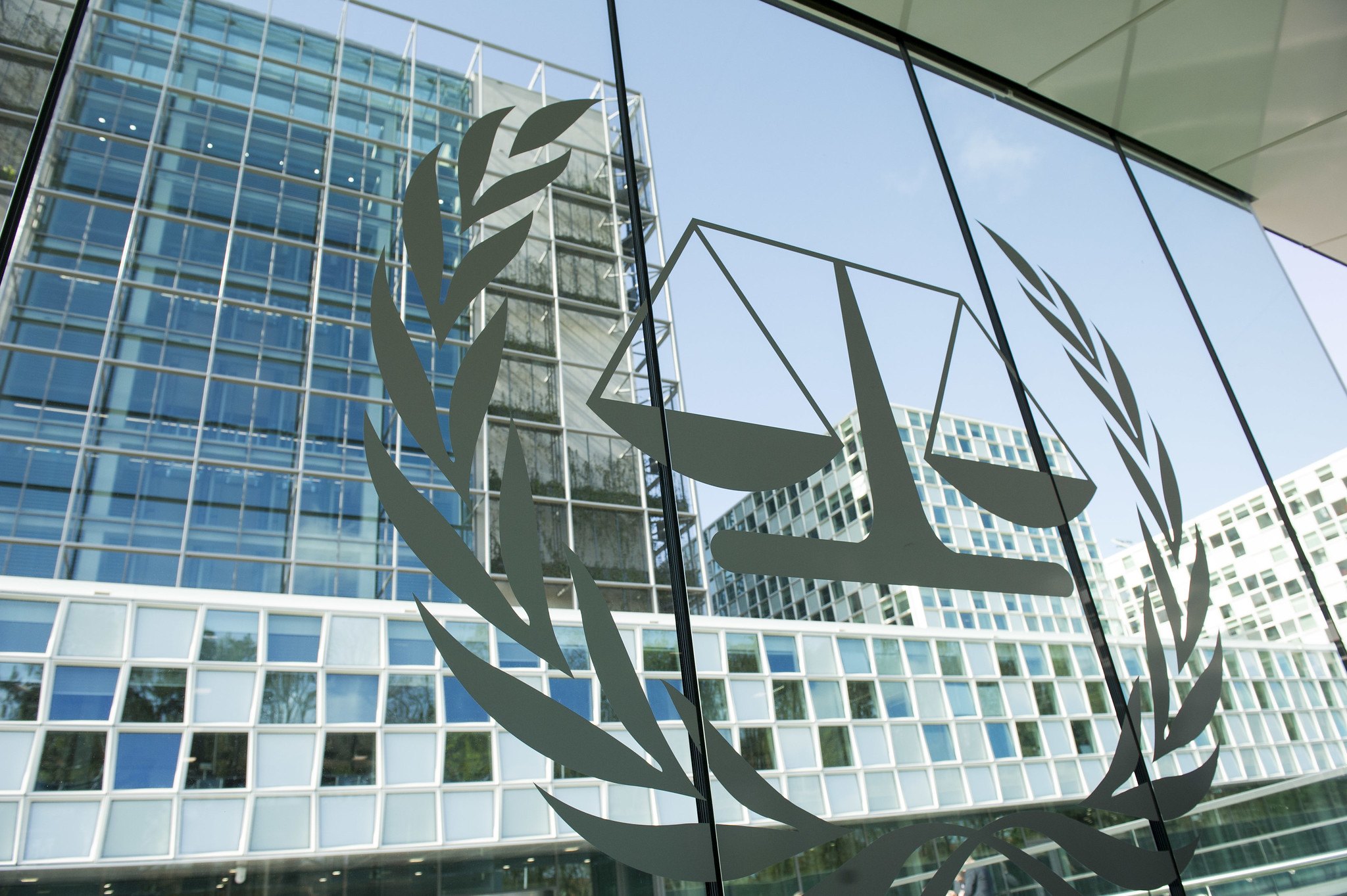Sinotech: The U.S. and China Order Consulate Closures as Huawei Tensions Heat Up in Europe
Lawfare's biweekly roundup of U.S.-China technology policy and national security news.

Published by The Lawfare Institute
in Cooperation With

U.S. and China Order Consulate Closures
The U.S. government on July 22 ordered China to close its consulate in Houston, accusing Chinese diplomats of engaging in espionage and the theft of American scientific research. Secretary of State Mike Pompeo said the consulate was “a hub of spying and intellectual property theft.” The Chinese Embassy in Washington called the decision to close the consulate “an outrageous and unjustified move which sabotages China-U.S. relations,” and said that China had followed rules laid out in the Vienna Convention on Diplomatic Relations on protocol for diplomats.
In retaliation, China ordered the United States to close its consulate in Chengdu. In a statement, China’s Foreign Ministry said that U.S. diplomats at the Chengdu consulate “engaged in activities outside of their capacity, interfered in China's internal affairs, and endangered China's security and interests."
The specific events that led the Trump administration to close down the consulate in Houston remain unclear. Analysts noted that, in the international system, it is common practice for embassies and consulates to serve as hubs for espionage. And while the New York Times obtained a memo from American law enforcement that outlined a series of espionage campaigns emanating from the Houston consulate, experts pointed out that the Houston consulate’s operations likely pale in comparison to those China runs out of its San Francisco consulate.
Still, the U.S. decision to close the Houston consulate comes amid growing concern about Chinese intelligence and espionage operations targeting the United States. Just days before the closure of the consulate, the U.S. government released an indictment against two Chinese hackers accused of pilfering data on coronavirus treatments and stealing sensitive information from U.S. companies over the course of many years. On July 23, the U.S. charged four Chinese nationals with visa fraud, after the individuals allegedly failed to disclose their connections to China’s People’s Liberation Army (PLA).
The recent tit-for-tat marks the first time that the People’s Republic of China and the United States have shuttered each other’s consulates since formal relations were established more than 40 years ago. Following the announcement, Mike Pompeo delivered a speech in which he argued that U.S. efforts to engage with China had failed. He added that “If the free world doesn’t change... communist China will surely change us.” Taken together, the closure of the consulates and Pompeo’s fiery speech represent what many analysts view as a new low in rapidly deteriorating relations between the two powers.
Tensions Over Huawei Heat Up Between China and Europe
In Europe, opposition to Huawei has risen sharply over the past month, leading many analysts to believe the company risks being shut out of European 5G networks. On July 14, the U.K. banned Huawei components from its 5G infrastructure and ordered telecom providers to replace Huawei parts currently in use by 2028—reversing its decision in January to allow the company to play a limited role in the U.K.’s 5G rollout. Following the U.K.’s lead, France enacted a de facto phase-out of Huawei’s products (although it does not describe its policy as a ban). France granted licenses of up to eight years for Huawei components currently in its network but ordered those components removed after that point. The EU Commission on July 24 also released a report finding that Nokia and Ericsson—Huawei’s European competitors—could provide all the services needed for the European bloc to construct its own 5G network. While the report did not mention Huawei by name, it clearly referred to perceived security risks that Huawei poses.
These developments, and the U.K. policy change in particular, could influence the stance that other European governments take toward Huawei. European nations have closely studied the U.K.’s Huawei policies and many—including Belgium and the Netherlands—modeled their own restrictions on Huawei after Britain’s. The U.K.’s July decision has already bolstered opposition to Huawei in other countries. The German head of the EU Parliament’s China Commission, for instance, voiced support on July 14 for Germany to follow Britain’s lead. Germany, however, is not expected to make a decision about Huawei’s role in its 5G infrastructure until at least September.
China, for its part, has pledged retaliation against European countries that shun Huawei, increasing the likelihood that technology policy drives a wedge between Europe and China. On July 8, China’s state-run Global Times newspaper argued that the United States had spread malicious rumors about Huawei in Europe, and that the continent could not afford to cut ties with the company. After the U.K.’s ban, the Global Times called for retaliation. And on July 20, reports emerged that officials in China’s Ministry of Commerce were considering blocking European telecom companies Nokia and Ericsson if the EU banned Huawei. (A Chinese spokesperson denied these reports, citing Chinese bids that both European companies had won.)
Rising European opposition to Huawei marks a significant shift from the beginning of this year, when European nations appeared much more willing than the United States to work with the telecom company. In January, the European Union recommended limiting Huawei’s involvement in the continent’s 5G rollout, but not banning the company. The United Kingdom, that same month, made an initial decision to let Huawei supply it with a limited range of 5G products. However, doubts about Huawei took on greater force following concerns over China’s nontransparent handling of the coronavirus. The coronavirus crisis caused European leaders to rethink their relationship and underscored the potential security risks around 5G technology. The United Kingdom, additionally, likely reversed its policy partly due to new U.S. restrictions, issued in May, against transferring to Huawei goods produced with U.S.-made technology or equipment. U.K. authorities believed—as other countries now might—that complying with these regulations would be difficult if Huawei were to supply a new domestic 5G network
European countries’ moves away from Huawei have met with praise from the United States. Secretary of State Mike Pompeo lauded the U.K.’s decision last month while also urging other countries to “push back” against China. More broadly, Pompeo called for a “coalition” of nations to counter China both in the telecom space and other spheres. The United States has long urged European allies—at least since 2018—to be wary of dealing with Huawei. And it has recently stepped up these appeals. In mid-July, U.S. National Security Advisor Robert O’Brien met with French, Italian, U.K. and German officials to discuss Huawei’s security risks. Reportedly, U.K. politicians cited pressure from the United States as one cause for its ban in a private meeting with Huawei.
Movement away from Huawei also takes place as geopolitical tensions rise between China and Europe on a number of other issues. This summer, the European Union has levied harsh human-rights criticism against China—relating both to China’s treatment of Uighers and other minorities in Xinjiang, and to China’s new national security law for Hong Kong. After the national security law was passed, U.K. Prime Minister Boris Johnson also offered a pathway to British citizenship for an estimated three million Hong Kong residents.
Other News
Reports emerged on July 31 that President Trump plans to order Chinese company ByteDance to divest from TikTok. These reports also indicated that Microsoft is in talks with ByteDance to buy the social media app. At the same time, Facebook-owned Instagram announced that it will soon release “Reels,” a competitor to TikTok that will allow users to make short videos and pair them to music. Kevin Mayer, TikTok’s CEO, accused Facebook of launching a smear campaign against his company and of creating a “copycat” product.
The Trump administration has been considering action against TikTok for some time. Secretary of State Mike Pompeo stated in early July that the White House was considering taking various measures against TikTok, including banning it outright, over concerns about how the company handles data collected from U.S. users TikTok, has taken significant steps aimed at easing regulators’ concerns about its relationship with Beijing. In May, TikTok hired Disney executive Kevin Mayer as its CEO, and it later pledged to exit from Hong Kong after China passed its national security law for the city. As of the close of business on July 31, Trump had stated only that he was “looking at” banning TikTok, as well as other measures. TikTok is widely used in the United States, where it reports 187 million downloads.
The United States announced new sanctions against China’s Xinjiang Production and Construction Corps (XPCC), a paramilitary organization involved in the mass detention, sterilization, and forced labor campaign that Beijing has launched against Xinjiang’s Uighur minority. The Treasury Department’s Office of Foreign Assets Control (OFAC) indicated in a statement that the sanctions will target the XPCC as an organization as well as two individuals—Sun Jinlong, a former Political Commissar of the XPCC, and Peng Jiarui, the Deputy Party Secretary and Commander of the XPCC. Under OFAC’s guidance, the XPCC, Sun and Peng will be barred from accessing assets in the United States, and U.S. companies will be unable to process their transactions. The move represents an escalation in Washington’s ongoing effort to punish Chinese officials for human rights abuses, as the XPCC includes high-ranking party members and plays a critical role in governance and economic planning in Xinjiang.
Britain, Canada, Australia and New Zealand have suspended their extradition agreements with Hong Kong, after China enacted a national security law that analysts say infringes upon the city’s mini-constitution and rule of law system. British Foreign Secretary Dominic Raab said that the national security law was a "serious violation" of China’s international obligations. Reports suggest that the United States will soon suspend its own extradition agreement with Hong Kong on similar grounds.
The U.S. State Department terminated its Fulbright Program in China and Hong Kong at the end of July, notifying U.S. scholars that they could not take part in the 2020-21 exchange. The announcement fulfills a previous directive to close the program issued by President Trump. Trump initially ordered his administration to “take steps” to end the program under his July 14 executive order that ended preferential trade treatment for Hong Kong. The program’s cancellation affects a relatively small number of students: in 2017, the Fulbright Program sponsored 175 awardees studying in China and 17 in Hong Kong. But many believe Trump’s decision will have a chilling effect on cultural diplomacy. It also signals a continued pattern of cutting educational ties with China by the Trump administration. Trump signed, on May 29, an executive order suspending student visas for Chinese citizens with ties to Chinese military organizations. In 2017, The Trump administration also made attempts to eliminate the Fulbright Program entirely. Professors, University Administrators, international-relations practitioners have largely condemned the administration’s most recent restriction, with one scholar describing it as “shortsighted.” As of now, the U.S. Fulbright Program is temporarily suspended worldwide due to COVID-19.
On July 23, China successfully launched a trio of spacecraft headed for Mars, where they will be tasked with surveying the planet’s geography, looking for water in the Martian soil and measuring Mars’ climate. If successful, the mission would make China only the third country—after the United States and Russia—to successfully land a spacecraft on Mars. Analysts view China’s mission, called Tianwen-1, as a signal of the country’s intention to establish itself as a space power. The United States successfully launched its own mission to Mars on Thursday.
Commentary
For Brookings, Thomas Wright argues that the Trump administration’s criticisms of China will fall flat so long it fails to uphold democratic values at home and abroad. For the Center for a New American Security, Ainikki Riikonen and Martijn Rasser write that the United States can respond to security concerns prompted by Huawei by embracing open interfaces for telecommunications infrastructure. In the Financial Times, Robin Harding explains that even as the U.S., Australia, the U.K. and other allies take a tougher approach to China, Japan has felt strong economic pressure to avoid strident rhetoric. The Economist explores the ways that China’s new national security law may compound existing social and political issues in the city.
The New York Times editorial board writes that the United States must work with allies to strengthen its response to China’s aggressiveness in the South China Sea. For NBC News, Bonnie Kristian writes that the decision to close the Houston consulate introduces the risk of escalation in the United States’ relationship with China. The Wall Street Journal editorial board argues that the recent decision to close the Houston consulate may help demonstrate to the Chinese Communist Party that there will be costs for abusive behavior that exploits the international system. For the Washington Post, Ezra Vogel argues that Washington’s aggressive posture toward China may alienate friends of the United States in the People’s Republic.
For Lawfare, Robert Williams argues that the recent State Department statement on China’s expansive claims to the South China Sea may ruffle feathers in Beijing, but does not obviously demonstrate a strong U.S. commitment to provide military or other support to allies in the region. Peter Dutton explores legal and economic tensions between Vietnam and China over oil reserves, fishing rights and disputed islands. On ChinaTalk, Jordan Schneider and Eddie Fishman discuss the ways in which sanctions on China may not serve U.S. policy goals. And Chas Kassick provides a brief summary of four recent indictments against Chinese nationals accused of failing to disclose their connections to the Chinese military.






